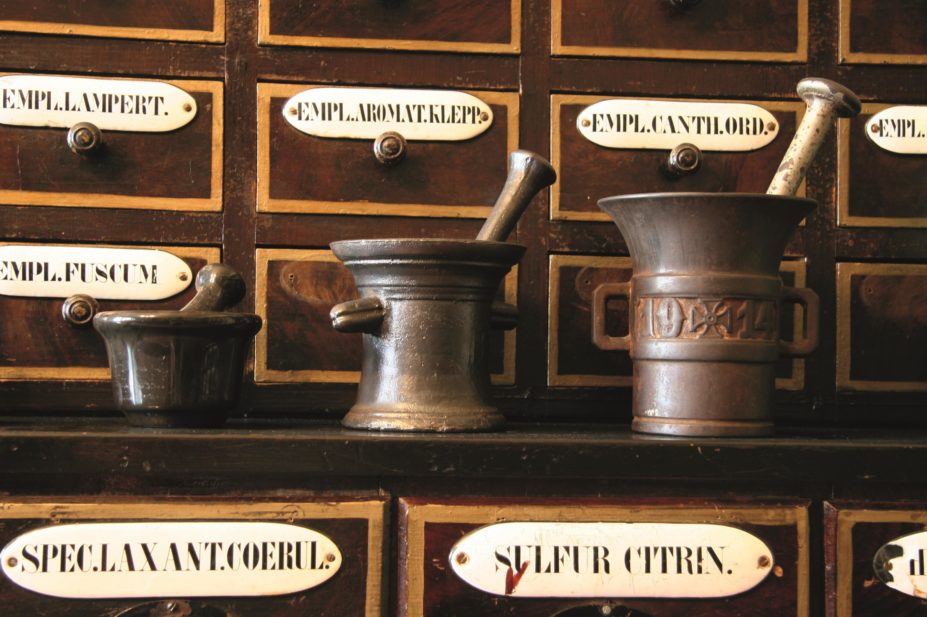
istockphoto.com
Pharmacy hasn’t been great at pitching services to the NHS. There are the usual excuses — too little funding or a lack of pharmacy representation on key bodies — but pharmacy could take a lesson from GPs.
Since the new NHS commissioning landscape took off in April 2013, GP practices have been busy getting together to form federations to develop new services and to bid for services from commissioners. This is because general practice cannot survive on its core contract, something that can be applied in good measure to the pharmacy sector.
These federations allow GP practices to share resources and expertise. Gains include increasing practice income, improving local service integration, reducing expenses and back office functions, developing training capacity, and being in a better position to compete with private providers. The latter is a hot topic as only this month (2 July 2014) a number of private healthcare firms
stated they were interested in bidding for a 10-year £700m contract to provide cancer care at four NHS GP-led clinical commissioning group areas in Staffordshire.
According to a survey by the British Medical Association in May 2014, 22% of GPs are already part of an existing network or federation and a further 35% are considering joining one.
“GP federations have been around since 2008-09, but it is only really now beginning to take off,” says Scott McKenzie, an independent management consultant, who advises GP practices on creating federations. He thinks they provide a “blank canvas” for owning and driving change locally.
GP federations vary in size. They can be as small as 11 GP practices covering a population of 50,000 people, as seen in Cumbria, or up to 38 practices covering around 200,000 people, as seen in Salford.
Others are in between, such as the GP federation in Newcastle — it has 5 practices covering 140,000 people — and in Harrogate — 19 practices covering 180,000. Most of them tend to be beyond the 100,000 mark.
Size matters for commissioners as they are unlikely to commission services for small patches of population. “You need that 80,000 to 90,000 population coverage. The 50,000 might work simply because of the geography in Cumbria. But if you were in central London, nobody is really going to want to contract for 50,000 people. Most of the federations tend to be mapped against the clinical commissioning groups; they bring in almost all the practices in the CCG,” says McKenzie.
Federations are working hard to win contracts. The Salford federation is in negotiation with a foundation trust for subcontracted work, the Newcastle federation is now bidding for local enhanced services, and a federation in Wigan, which has 19 practices, is in negotiation for pilot work on anticoagulants and is talking to a foundation trust around six pieces of sub-contracted work.
McKenzie thinks federations of community pharmacies would work and while he supports the “company limited by guarantee” model proposed by the Pharmaceutical Services Negotiating Committee, he believes pharmacies could be part of GP federations.
But would GPs be keen on this? He answers: “To genuinely deliver the full level of care that is required will definitely need community pharmacy input and I do think there is an appetite now in general practice for people to face up to the fact that we need to include all of our allied colleagues from other parts of the system.”
The PSNC’s head of regulation Steve Lutener is also supportive of pharmacies joining GP federations. But will they really look after the interests of pharmacy?
“Why shouldn’t they? The GPs are concentrating on what GPs should be doing; they don’t want to provide a service that can be provided by a pharmacist,” he says. “What you might worry about is whether there’s fairness about the distribution of the funding and that is where the local pharmaceutical committees (LPCs) will have their battles. They’ll want to ensure there is a fair return for the pharmacist taking part. But everyone is in this together. GPs and the medical profession, pharmacists and the pharmacy profession, both know the NHS is under enormous pressures. Working together is how we get the results.”
For example, federations could provide a solution to seven days a week services, through GP hubs. Such a model would allow the federations collectively to bear the responsibility of providing services every day, without having to open every single practice.
The drawbacks come when you can’t get all the practices on board, says McKenzie. “Then you have to find different ways of contracting with people who are not members, which brings in a raft of problems.”
Pharmacist chambers have also been mooted as a way for pharmacists to develop large-scale services, but McKenzie questions their accountability. “The chambers aspect is perfectly do-able, but what it takes is the will of somebody to shape and drive it. The downside to chambers is who really owns the chambers? Who are the commissioners going to contract with, and who will be accountable if something goes wrong?” In a company model, if something goes wrong, you can hold its directors liable.
There are already many GP chambers in existence, but they tend simply to offer locum services to GP practices.
Whatever model pharmacy finally decides to adopt, the key question is whether these vehicles will benefits patients.
You may also be interested in

Calling the shots: the pharmacists combatting vaccine misinformation

Embedding quality improvement in pharmacy practice: a departmental strategy at University Hospitals of Derby and Burton
